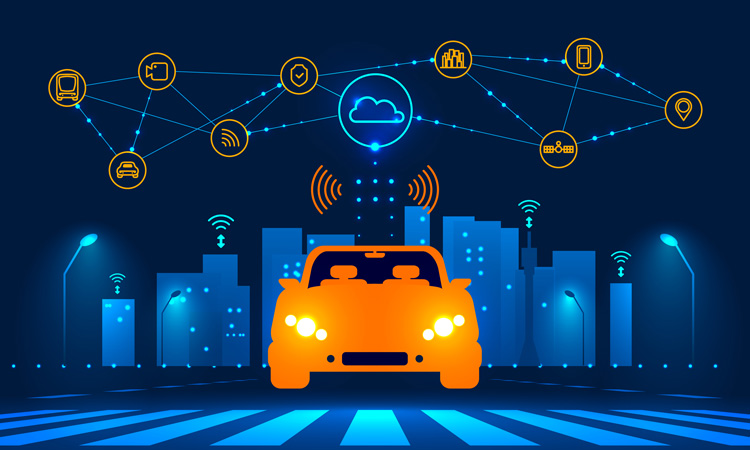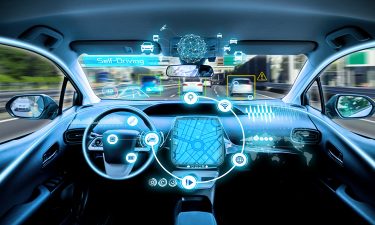Trustonomy: building the acceptance of automated mobility
- Like
- Digg
- Del
- Tumblr
- VKontakte
- Buffer
- Love This
- Odnoklassniki
- Meneame
- Blogger
- Amazon
- Yahoo Mail
- Gmail
- AOL
- Newsvine
- HackerNews
- Evernote
- MySpace
- Mail.ru
- Viadeo
- Line
- Comments
- Yummly
- SMS
- Viber
- Telegram
- Subscribe
- Skype
- Facebook Messenger
- Kakao
- LiveJournal
- Yammer
- Edgar
- Fintel
- Mix
- Instapaper
- Copy Link
Posted: 29 May 2020 | Stefano Bianchi | No comments yet
Stefano Bianchi, coordinator of H2020 Trustonomy, tells Intelligent Transport how the European research project is advocating to build the safety, trust and acceptance of automated vehicles, bringing experts and citizens together.


What is Trustonomy?
Kicked off in May 2019, within the Horizon 2020 Research and Innovation programme from the European Commission (Mobility for Growth, Topic MG-3-3-2018 “Driver behaviour and acceptance of connected, cooperative and automated transport”), Trustonomy (a neologism from the combination of trust + autonomy) is a research project aimed to raise the safety, trust and acceptance of automated vehicles. The project addresses technical and non-technical challenges through an integrated and inter-disciplinary approach, bringing experts and ordinary citizens to work closely together.
Besides the 16 beneficiaries directly involved within the consortium from nine European countries, the project is supported by an Advisory Board, which includes external experts providing strategic oversight, considering business and technical perspectives, and actively contributing to the project evolution. At the moment, the Trustonomy Advisory Board includes: Austriatech, ERTICO, Iveco, Toyota, Czech Transport Research Centre, and UnipolSai.
Working on people’s trust is a huge challenge
During its three years, Trustonomy will investigate, setup, test and comparatively assess, in terms of performance, ethics and acceptability, different relevant technologies and approaches in a variety of autonomous driving scenarios, covering different types of users, road transport modes, levels of automation, and driving conditions.
How did the project come to be? Why is there a need for such a project?
Trustonomy is funded by the European Commission (Grant Agreement N° 815003) who has invested a lot in the recent years both in research and demonstration related to autonomous driving.
Despite technological breakthroughs in connected and automated transport, the total transformation of existing transportation into a fully autonomous system is still decades away. In the meantime, mixed traffic environments with semi-autonomous vehicles, proactively passing the control to the human driver in specific situations, is expected to become the norm. In this context, “Requests to Intervene” (RtI) can only be successful and met with trust by end-users if the driver state is continuously monitored and his/her availability properly evaluated and sufficiently triggered.


The human factor is still (and will remain) essential for the safety and performance of road transport in the forthcoming decades, due to the necessary driver-vehicle interaction, and because of the co-existence of fully-, semi- and non- autonomous vehicles, which is likely to be raising unexpected challenges. The multidisciplinary assessment frameworks proposed by the Trustonomy project are meant to bring the human factor at the very centre of different technological approaches.
What are the main obstacles preventing a faster transition to automation?
Probably those same aspects that Trustonomy is investigating on – trust and acceptance – coupled with regulatory issues and technological aspects.
After one year of work, Trustonomy has analysed the overall operational context of automated driving, including regulatory frameworks, operational barriers, existing solutions and expected trends, both at technological and market levels, setting up the stage of the project for the concerned domains.
During its three years, Trustonomy will investigate, setup, test and comparatively assess, in terms of performance, ethics and acceptability, different relevant technologies and approaches in a variety of autonomous driving scenarios
Trustonomy also carried out preliminary research to define the user requirements, focusing on the scenario known as “Request to Intervene”, whereby a driver is required to take back manual control from an automated vehicle due to boundary conditions that do not allow automation anymore. A survey was undertaken to explore what characteristics/design considerations are important to users, with respect to the amount of trust they would have in this type of scenario.
To find the right mix of cooperation level between human/machine is not that easy neither fast. Working on people’s trust is a huge challenge. And even if you overcome this challenge, a coexistence phase human/machine may still be necessary.
How can we overcome these challenges?
Doing exactly what the European Commission is doing: investing in research and innovation and, as a result, defining rules and guidelines to harmonise.
At the moment, Trustonomy is especially focused on the design of preliminary and final specifications, a key work involving almost the whole consortium. Project pilots, mainly devoted to the analysis of user’s acceptance of and trust in autonomous driving systems, are taking shape as well, and preliminary trials will start in the coming months, compatibly with the COVID-19 emergency.
Do you think COVID-19 will accelerate the transition?
COVID-19 will generally increase the level and importance of automation, but probably not in all sectors and not in the very same way. This will surely happen, for example, in the health, transportation and logistics domains. Having autonomous vehicles in the streets, driving for the humans without direct control, is a completely different story. Maybe COVID-19 might ultimately have the opposite effect, with people only trusting themselves and moving massively back to fully controlled private transport (economic impact of the pandemic might also have an effect on actual mass purchase power, hampering the take up of ADS). We still need time to see how the different scenarios will evolve.
Biography
Stefano Bianchi is Research & Innovation Manager in algoWatt SpA. With a Biomedical Engineering degree from the University of Genoa, he has nearly 20 years of experience in Research and Innovation projects, both at European and national level.
His experience ranges from user requirements analysis to system architecture design and technical software development (web application in particular), with emphasis on complementary activities such as market analysis and business model planning, dissemination and exploitation, up to project technical, administrative and overall coordination. He has recently coordinated the H2020 ANASTACIA project on cybersecurity and privacy solutions for complex IoT/CPS architectures and the H2020 IMOVE project on innovative mobility solutions and Mobility-as-a-Service (MaaS). He is currently coordinating the Italian CSEA projects PODCAST on smart grids and VIRTUS on Virtual Power Plants (VPP) and the H2020 TRUSTONOMY project on building acceptance and trust on autonomous mobility.
Related topics
Connected & Autonomous Vehicles, COVID-19, Fleet Management & Maintenance, Mobility Services, Passenger Experience, Transport Governance & Policy, Vehicle & Passenger Safety
Related modes
Autonomous vehicles
Related organisations
Trustonomy







